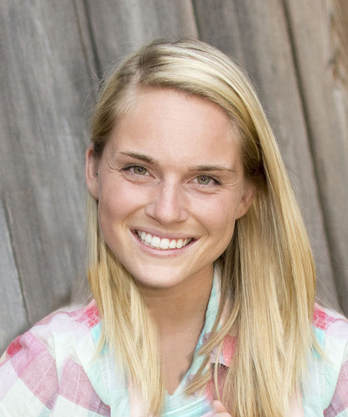|
By Jennifer Rollin, MSW, LCSW-C While mental health has been a hot topic in the media recently, there is still a lot of stigma around the idea of struggling with a mental illness. Many people struggle with feelings of shame when it comes to struggling with their mental health. This is perfectly understandable given the amount of stigma in society. However, would you feel shame around struggling with hypothyroidism or an autoimmune disease? There’s still this pervasive myth about mental illness that they are simply “choices,” that depression is just about “feeling sad,” that anxiety is just about worrying, and that eating disorders are “just about wanting to be thin” or a “diet gone too far.” These myths could not be further from the truth. No one would ever choose to struggle with suicidal thoughts. No one would want to feel unable to get out of bed or to lack the energy to even make a cup of coffee. No one would ask to struggle with intense anxiety and constant thoughts around food and their body. No one would say, “I want to struggle with binge eating where I feel completely possessed and eat until I feel physically uncomfortable. And then feel incredible guilt and shame after.” Mental illnesses are not choices. The same way that physical illnesses are not choices. Why is it that people often don’t feel shame about saying they are going to see a doctor for their physical health, but for some sharing that you see a psychiatrist or a therapist can feel stigmatizing? Why is it that when someone is diagnosed with a serious physical health condition, often people bring food or call them to offer support. However, if someone has a child in the psychiatric unit-the response is generally not as supportive. Why is it that insurance companies often will cover physical health conditions but deny or shorten coverage of life-saving eating disorder residential treatment stays? There are many people who are informed about mental health and are happy to support those who are struggling, however ultimately the amount of stigma in our society is still a very pervasive issue. The same way that it's important to meet with a doctor to take care of your physical health needs. It is crucial to take care of your mental health, whether that involves setting boundaries with certain people, seeing a therapist, taking psychiatric medication, or doing activities that improve your mental health. You Are Not A Burden Additionally, many of my clients share with me that they struggle with feeling like because of their mental health challenges that they are “a burden” to their loved ones. However, would you call yourself a burden to your family if you had a broken leg or an autoimmune disease? You are not a burden. You deserve support, and the fact that you are struggling with a mental illness is not your fault. Further, reaching out for help when you are struggling is not a sign of weakness, it's actually a sign of courage. We don’t get to choose our brain chemistry, and struggling with a mental illness can be incredibly tough. However, with access to treatment and support individuals can go on to lead productive and purpose-filled lives. People struggling with mental illness are ultimately some of the most intelligent, resilient, brave, and compassionate people that I know. The Eating Disorder Center is a premier outpatient eating disorder therapy center in Rockville, Maryland. We specialize in helping teens and adults struggling with anorexia, binge eating disorder, and bulimia, and body image issues. We also offer therapy for obsessive compulsive disorder. We provide eating disorder therapy in Rockville, MD, easily accessible to individuals in Potomac, North Potomac, Bethesda, Olney, Silver Spring, Germantown, and Washington D.C. We provide eating disorder recovery coaching via Zoom to people worldwide. Connect with us through our website at www.theeatingdisordercenter.com By Hanna Kuyper, MA I was running errands with my son this morning and we drove past a gym with a giant billboard that reads "summer bodies are made here." A while later I hopped on my emails to read one that tells me how I need to 'cleanse regularly.' This evening I was in the checkout at the grocery store and the cashier was having a conversation with the woman in front of me about her new venture into "clean eating." I waited patiently with my combo pizza, chocolate cake and vanilla ice cream. This is all an example of diet culture and a great example of what is very wrong with how we view the concept of well-being. A good friend of mine told me recently that she was about to sign up for a yoga retreat when the owner let her know it probably wasn't the best idea because "yoga is difficult for people with larger bodies." This is an example of the very real issue of weight stigma and fat-phobia. Diet culture surrounds us everywhere. Starting a new diet, beginning a new workout program, going on a cleanse (shout-out to my liver and kidneys for making this totally unnecessary!), it can all seem harmless enough however there are a lot of negative side effects that come along with it. I could share the research, I could offer the scientific data, I could show you study after study but I think whats more important is to really take a look at how these approaches make us feel about our worth. What happens when my son grows up reading billboards everywhere telling him he needs to change his body because summer is coming? What happens to the person who goes on a diet and develops a life-threatening eating disorder (in part due to genetic/temperamental roots)? Or to the person who starts to believe that their value lies in the size of their body? How would you feel if you were told you probably shouldn't do something because someone had a bias against your body shape and size? As an eating disorder recovery coach for The Eating Disorder Center, I work with clients who are in recovery from eating disorders. Diet culture plays into their eating disorder on a daily basis. So what does that look like? It looks like isolation, a living hell and treatment costing up to $30k a month. It looks like time away from their family, lost friendships and being constantly preoccupied with thoughts about food, body and weight. It looks like shame, exhaustion and a constant battle against diet culture. Those in recovery are the bravest and strongest people I know. They're fighting an eating disorder in a culture that very much normalizes disordered eating. The thing about diet culture is It's tricky, it's sneaky and it's created by us. Some of us may not even know we are playing into it and that's the reason I encourage you to get curious. Challenge your beliefs, your biases and your approaches. I think one of the most important things to remember is that it's not black and white. There is room for veggies and quinoa and pizza and cake. There is room for movement and rest. There is room for large bodies, small bodies, short bodies, tall bodies and every body in between. A lot of times this makes people uncomfortable. It isn't sexy. It doesn't sell. It doesn't fit into a clean box. You can't wrap it up in a pretty marketing strategy and make $60 billion off of it. That's a tough sale. But know this, the more we get curious, honest and real about what diet culture is the more we can fight it. The more we can educate, stand up to it and challenge it, the more likely someone can gain their life back. If you are struggling know that you are not alone. Reaching out for help is so brave. You don't have to feel trapped anymore. Click here to book your free 15 minute video initial consultation with Hanna! The Eating Disorder Center is a premier outpatient eating disorder therapy center in Rockville, Maryland. We specialize in helping teens and adults struggling with anorexia, binge eating disorder, and bulimia, and body image issues. We also offer therapy for obsessive compulsive disorder. We provide eating disorder therapy in Rockville, MD, easily accessible to individuals in Potomac, North Potomac, Bethesda, Olney, Silver Spring, Germantown, and Washington D.C. We provide eating disorder recovery coaching via Zoom to people worldwide. Connect with us through our website at www.theeatingdisordercenter.com By Jennifer Rollin, MSW, LCSW-C Many of my clients in recovery from eating disorders struggle with “black and white thinking.” If you are struggling with this you are definitely not alone. Here are some common examples of eating disorder thoughts that are also “black and white,” or “all or nothing thinking.” Eating Disorder Thought: “I didn’t exercise today and I ate a cookie. I’m going to the other extreme and becoming an unhealthy person.” Eating Disorder Thought: “I ate a donut today, which is one of my number one fear food. I can’t possibly be that sick anymore.” Eating Disorder Thought: “I just ate a brownie, so I’ve already failed at my diet for today. Might as well go finish off the rest of them and then I’ll be good tomorrow.” The Function of Black and White Thinking Black and white thinking provides a (false) sense of certainty and “control.” It simplifies life into deceptively neat little boxes where things become either “all good” or “all bad.” However, the reality is that recovery and life are lived in the grey zone. Both are messy (rather than neat little boxes), and filled with a variety of different shades. The problem is that when we stay stuck in black and white thinking, we miss out on an assortment of possibilities. Black and white thinking actually narrows our focus and if you struggle with an eating disorder, can make your world increasingly small. Challenging Black and White Thinking It’s important to note that your eating disorder will say anything in order to keep itself alive. However, just because you have a thought does not mean that it is true. The following concept comes from Carolyn Costin, a therapist and the founder of Monte Nido. Essentially, it’s about responding to your eating disorder thoughts from your “healthy” or “true self” in the moment. It can sometimes be helpful to write the thoughts out and to make sure that you are ending the dialogue on “the healthy self.” Some Examples Eating Disorder Self; “I didn’t exercise today and I ate a cookie. I’m going to the other extreme and becoming an unhealthy person.” Healthy Self: Not exercising for a day and eating a cookie are both normal and healthy things to do. Your body deserves to rest and you deserve to eat food that you enjoy. Neither of these things will make you “unhealthy.” Eating Disorder Self: “I ate a donut today, which is one of my number one fear food. I can’t possibly be that sick anymore.” Healthy Self: It’s awesome that you challenged yourself! However, just because you had a great day in recovery-doesn’t mean that you are suddenly “fine.” Eating Disorder Self: “I just ate a brownie, so I’ve already failed at my diet for today. Might as well go finish off the rest of them and then I’ll be good tomorrow.” Healthy Self: All foods can fit into a healthy diet. You didn’t “fail” by eating a brownie. Try to tune into what you actually want right now, rather than simply listening to what you’re eating disorder is telling you to do. If you are struggling to come up with “healthy self” thoughts, it can be helpful to think about what you’d tell a loved one (or even a child) who said something similar. It's unlikely that you would say some of the cruel and punishing things that you say to yourself, to someone that you love. It Takes Practice If your automatic default setting is one of “black and white thinking,” it’s important to be patient with yourself in this process. It’s just like learning any other skill. You wouldn’t sit down at the piano and expect to be able to play it right away, so try to be compassionate with yourself that it may take some time to learn more helpful thinking patterns. However, with time and practice you can actually rewire the neural pathways in your brain, until eventually your new “automatic default setting" is healthier and more helpful thinking patterns. The Eating Disorder Center is a premier outpatient eating disorder therapy center in Rockville, Maryland. We specialize in helping teens and adults struggling with anorexia, binge eating disorder, and bulimia, and body image issues. We also offer therapy for obsessive compulsive disorder. We provide eating disorder therapy in Rockville, MD, easily accessible to individuals in Potomac, North Potomac, Bethesda, Olney, Silver Spring, Germantown, and Washington D.C. We provide eating disorder recovery coaching via Zoom to people worldwide. Connect with us through our website at www.theeatingdisordercenter.com Book your free 15 minute phone consultation with us! Email: [email protected] By Jennifer Rollin, MSW, LCSW-C In my work as a therapist with people struggling with eating disorders, some describe their eating disorder as feeling like “a friend.” To those who don’t struggle with eating disorders, this might seem confusing. However, often to the person who is struggling, their eating disorder may feel like a source of "companionship,” “comfort,” “something that makes me feel special,” and “that is always there for me.” Your eating disorder has served some purpose for you, or you wouldn’t engage in the behaviors. However, it’s important to note that eating disorders often provide short-term feelings of “comfort,” and “anxiety-relief,” with long-term feelings of isolation, depression, and misery. Your Eating Disorder Is Like a Toxic Friendship The reality is that your eating disorder is like an incredibly toxic friendship. Your eating disorder threatens that if you decide to leave, your life will be in shambles. Your eating disorder tells you that you will be unhappy without it. Your eating disorder promises you comfort, connection, and specialness and it may give you those feelings in the short-term. However, in the long-term, it only serves to make you more isolated, lonely, disconnected, and isolated from the people that you care about. An eating disorder often starts to become your primary relationship and your other relationships may start to suffer. Eating disorders may promise to make you feel “special” and “unique.” However, the reality is that the deeper you are into an eating disorder, the more you become a carbon copy of everyone else who is struggling with an eating disorder. An eating disorder hijacks your true sense of self and replaces it with an illness. I posted something on Instagram which helps to explain why eating disorders are like toxic (or even abusive) friendships, it said: Your enjoyment of family dinners Your sense of humor Your ability to feel happy Your friendships Your passions Your fertility Your health You strong bones Your shiny hair Your confidence Your freedom Your life What will your eating disorder take from you if you continue to stay sick? Eating disorders are not a choice. But you can choose to take the first step towards recovery, today. If You Are Afraid To Let Go Of Your Eating Disorder If you are afraid of letting go of your eating disorder and starting to take steps towards recovery, I’d ask you to make a list of what your life could look like 5 years from now if you stay sick, vs. 5 years from now if you recovered. The reality is that you can always go back to your eating disorder. But what if you tried something different this time? You know how to have an eating disorder, but what if you gave recovery a try? You will not regret it. Have you ever been in a toxic friendship, and when the friendship finally ended you felt free? This is ultimately how you will feel when you recover. Your life will no longer be dictated and controlled by this eating disorder yelling in your head. You will be able to explore your true passions, build and strengthen relationships, and feel a sense of freedom and peace. The Eating Disorder Center is a premier outpatient eating disorder therapy center in Rockville, Maryland. We specialize in helping teens and adults struggling with anorexia, binge eating disorder, and bulimia, and body image issues. We also offer therapy for obsessive compulsive disorder. We provide eating disorder therapy in Rockville, MD, easily accessible to individuals in Potomac, North Potomac, Bethesda, Olney, Silver Spring, Germantown, and Washington D.C. We provide eating disorder recovery coaching via Zoom to people worldwide. Connect with us through our website at www.theeatingdisordercenter.com When I decided that I wanted to hire someone to work with me in my practice, I received many applications and conducted a lot of interviews. After I interviewed, Hanna Kuyper, I knew immediately that she was the person who I wanted to hire. I asked her to do a "role-play" session with me and she completely knocked it out of the park! I almost offered her the position on the spot. Hanna is compassionate, smart, kind, and highly knowledgeable when it comes to helping people to recover from eating disorders and body image issues. I was so excited to do an interview with my amazing new contractor, Hanna Kuyper, eating disorder recovery coach, who works with people worldwide via video (Zoom). Jennifer: Tell me a little bit about yourself and what fueled your interest in helping people to recover from eating disorders? Hanna: Well, the most important roles in my life are as a mama and a wife. I have been married to my husband for four years and we have a sweet one year old. I am just finishing up my Master's degree in Counseling Psychology with a speciality in Eating Disorders and Body Image. I previously served on the board of the nonprofit, Body Revolution, dedicated to advocating for those with eating disorders. In 2015, I opened my own studio iamwell, a community dedicated to helping women create a healthy relationship with food and their bodies I also created and ran women's groups that focused on body image, self compassion and intuitive eating. I am beyond passionate about helping people to recover from eating disorders and body image issues. I personally struggled with an eating disorder and now being on other side and being recovered, I couldn’t imagine doing anything other than helping people in their journey. Feeling true freedom in my own life fuels me to help others experience the same. When you have struggled with an eating disorder for so long you don’t always know that there is a life outside of your disorder. However, there is SO much you get to experience as you leave your eating disorder behind and step into your true self. It is such an amazing thing. Jennifer: What would you say are some common misconceptions when it comes to eating disorders? Hanna: Through my time in this field and also struggling with my own eating disorder in the past, I have come to learn that there are a lot of misconceptions and lack of awareness when it comes to eating disorders. Some of the misconceptions I hear are 1. Eating Disorders only affect a certain population Eating Disorders can affect anyone from any population. I think we have this bias that only white, middle class, thin females are affected. When in reality it’s males, females, people in higher weight bodies, people involved in particular sports, individuals experiencing high levels of stress, adolescents, adults and everywhere in between. Eating disorders affect a wide range of individuals and you cannot determine that based on someone's appearance. 2. Eating Disorders aren’t serious There is still a lot of work to do in the community to educate on what Eating Disorders are and just how serious they are. Eating Disorders have the highest mortality rate over any other mental illness. They are more than a diet gone too far and more than telling someone to ‘just eat more’ or ‘just eat less’. Which brings me to my next point…… 3. It’s all about the food This is a tough one because although it is about the food, it’s also not about the food. There’s a strong relationship to trauma and the development of eating disorders as well as genetics, perfectionism and other personality traits. Eating disorders are complex and a lot of the time a coping mechanism for something much deeper that needs to be worked through. Jennifer: How would you describe your approach as an eating disorder recovery coach? Hanna: As a coach I am very action focused while still holding compassion for my clients. I tailor each session based on clients individual needs and enjoy setting goals and utilizing effective strategies. I create an atmosphere where clients can be vulnerable and feel safe to grow and challenge themselves. I like to be authentic and provide a space for my clients to do the same. Every person's journey is different but going through my own journey in the past allows me to walk alongside my clients with a compassionate heart knowing they have the ability to overcome this illness and fully recover. Jennifer: Do you subscribe to a health at every size approach? Hanna: I am a strong believer in health at every size. Unfortunately we have a stigma around body size and shape and think that thin=healthy and larger body=unhealthy. Health at every size encourages embracing body diversity and respecting the idea that we are all unique and different. It's also important to note that your body size says nothing about your worth or value as a person. Jennifer: For those who don't know about your role as an eating disorder recovery coach. What is eating disorder recovery coaching? Hanna: Eating disorder recovery coaching is a powerful added support to therapy (or may be appropriate as a stand-alone service for those who are struggling with disordered eating, body image issues, or are further along in their recovery). If a client is working with other professionals, I am happy to collaborate with them. Many individuals in recovery benefit from having more support than a once-a-week therapy session, and a recovery coach can be a great addition to a treatment team. Recovery coaching is present-focused and action-oriented. I love setting goals with clients and helping them to take steps in their recovery. When you work with me as an eating disorder recovery coach, it includes weekly video sessions via Zoom, as well as email support between sessions. This can be incredibly helpful for those who are struggling and in need of additional support. I love being an eating disorder recovery coach, because I am able to work with people all over the world! This helps me to reach people who might not have much access to support in their communities. Jennifer: What would you say are some of the biggest challenges and most rewarding aspects of your job? Hanna: My biggest challenge is that I want to change the world! Ha! I have so much passion for this area that I have to remind myself to take it one step at a time. There is so much education that needs to be done and so many more resources that need to be offered it could be an endless job. Being able to connect with like minded professionals that want to make a change and create a shift has been so fun and encouraging. There is no way I could answer what the most rewarding part of this job is because there are SO many. Having the honor to be able to walk alongside someone in their recovery journey is amazing. Seeing an individual gain their life back is incredible. I couldn’t imagine working in any other field. Jennifer: How is your life as a recovered person different from your life in an eating disorder? Hanna: There is so much freedom. I am able to explore who my authentic self is, what my beliefs are and what I value. My life is now full of things I truly value like family, relationships, connection, adventure and so much more, including good food! Jennifer: What is one piece of advice that you would give someone who is struggling in their recovery? Hanna: Allow yourself to go through the process. When I first started my recovery journey I thought that every slip up meant I had to start over again. It was exhausting and I felt like a failure. My (at the time boyfriend) now husband told me in one of my self pity moments that I was allowed to make mistakes. I was allowed to struggle. I was allowed to not be perfect. It sounds so simple but really giving yourself permission to go through the process is empowering. Often individuals who are struggling with an eating disorder have a tendency to think in black and white terms. Recovery is not black and white. Recovery is messy, complicated, confusing and sometimes exhausting. However, every day we show up we grow a little more. Eventually those small victories, the small growing pains, the small changes we don’t even see happen….they turn into recovery. Work with Hanna: Click here to learn more and to book a free 15 minute phone consultation. Follow Hanna on Instagram: hanna_kuyper The Eating Disorder Center is a premier outpatient eating disorder therapy center in Rockville, Maryland. We specialize in helping teens and adults struggling with anorexia, binge eating disorder, and bulimia, and body image issues. We also offer therapy for obsessive compulsive disorder. We provide eating disorder therapy in Rockville, MD, easily accessible to individuals in Potomac, North Potomac, Bethesda, Olney, Silver Spring, Germantown, and Washington D.C. We provide eating disorder recovery coaching via Zoom to people worldwide. Connect with us through our website at www.theeatingdisordercenter.com
|
The Eating Disorder CenterWe are a premier outpatient eating disorder therapy center in Rockville, Maryland. Archives
July 2024
Categories |





 RSS Feed
RSS Feed